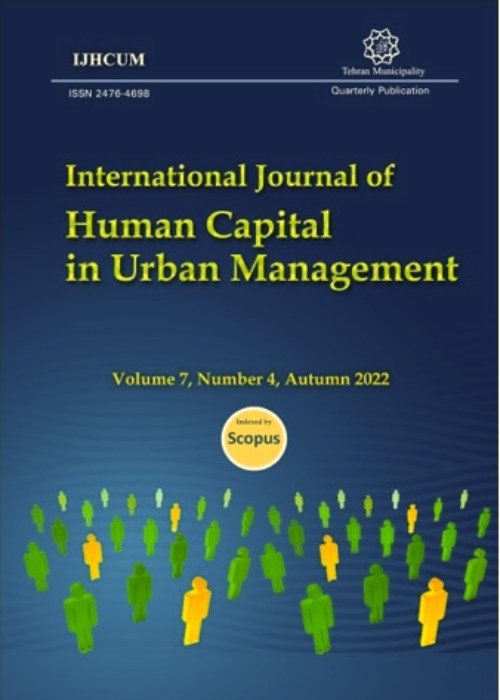Quest for authenticity in reinvention of historic houses in urban areas
Author(s):
Article Type:
Research/Original Article (دارای رتبه معتبر)
Abstract:
BACKGROUND AND OBJECTIVES
A relatively large number of historic (traditional and old) houses have been restored in Iranian cities in the recent period. Of increasing demand in the era of the experience economy, many are used as cafes, restaurants, galleries, ecolodges, etc. Cultural heritage and urban policies have further provided a general framework and some incentives for the restoration and reuse of these houses. Leveraging a tourism development framework, this paper investigated how authenticity could be achieved in practice in the restoration and reinvention of historic houses.METHODS
A flexible policy research approach was employed to probe the current framework governing the restoration of historic houses. Another part of the analysis was based on a set of semi-structured interviews and field observations targeting restored historic houses in the city of Shiraz. Specifically, interviews were conducted with owners/operators of the most significant category of reused old houses—those turned into ecolodges—along with visitors.FINDINGS
Based on the fieldwork results, five general recommendations were provided for owners/operators of restored historic houses/ecolodges toward realizing authenticity: there is a need for pre-planning and employment of adequate knowledge and knowhow to provide authentic experiences to visitors; objective elements should leverage creativity, balance tradition and modernity, and give the establishment its own personality; subjective elements should be reflective of local culture, history, and hospitality; a major aim is to have tourists emotionally engaged with the place and easily interact with people, places, and things; and allowing for co-creation could instill an enduring sense of belonging into visitors.CONCLUSION
Notwithstanding recommendations for owners/operators of restored historic houses, tourism and urban authorities must focus on the creation of a policy framework that encourages the delivery and management of authenticity. Adopting a stronger socio-cultural approach should help to achieve additional regeneration objectives of local economic development through increased interaction among public-sector agencies, non-governmental institutions, local populations (property-owners or tenants), and investors.Keywords:
Authentic , Ecolodge , Restoration , Shiraz , Tourism
Language:
English
Published:
International Journal of Human Capital in Urban Management, Volume:8 Issue: 2, Spring 2023
Pages:
179 to 194
magiran.com/p2567836
دانلود و مطالعه متن این مقاله با یکی از روشهای زیر امکان پذیر است:
اشتراک شخصی
با عضویت و پرداخت آنلاین حق اشتراک یکساله به مبلغ 1,390,000ريال میتوانید 70 عنوان مطلب دانلود کنید!
اشتراک سازمانی
به کتابخانه دانشگاه یا محل کار خود پیشنهاد کنید تا اشتراک سازمانی این پایگاه را برای دسترسی نامحدود همه کاربران به متن مطالب تهیه نمایند!
توجه!
- حق عضویت دریافتی صرف حمایت از نشریات عضو و نگهداری، تکمیل و توسعه مگیران میشود.
- پرداخت حق اشتراک و دانلود مقالات اجازه بازنشر آن در سایر رسانههای چاپی و دیجیتال را به کاربر نمیدهد.
In order to view content subscription is required
Personal subscription
Subscribe magiran.com for 70 € euros via PayPal and download 70 articles during a year.
Organization subscription
Please contact us to subscribe your university or library for unlimited access!


